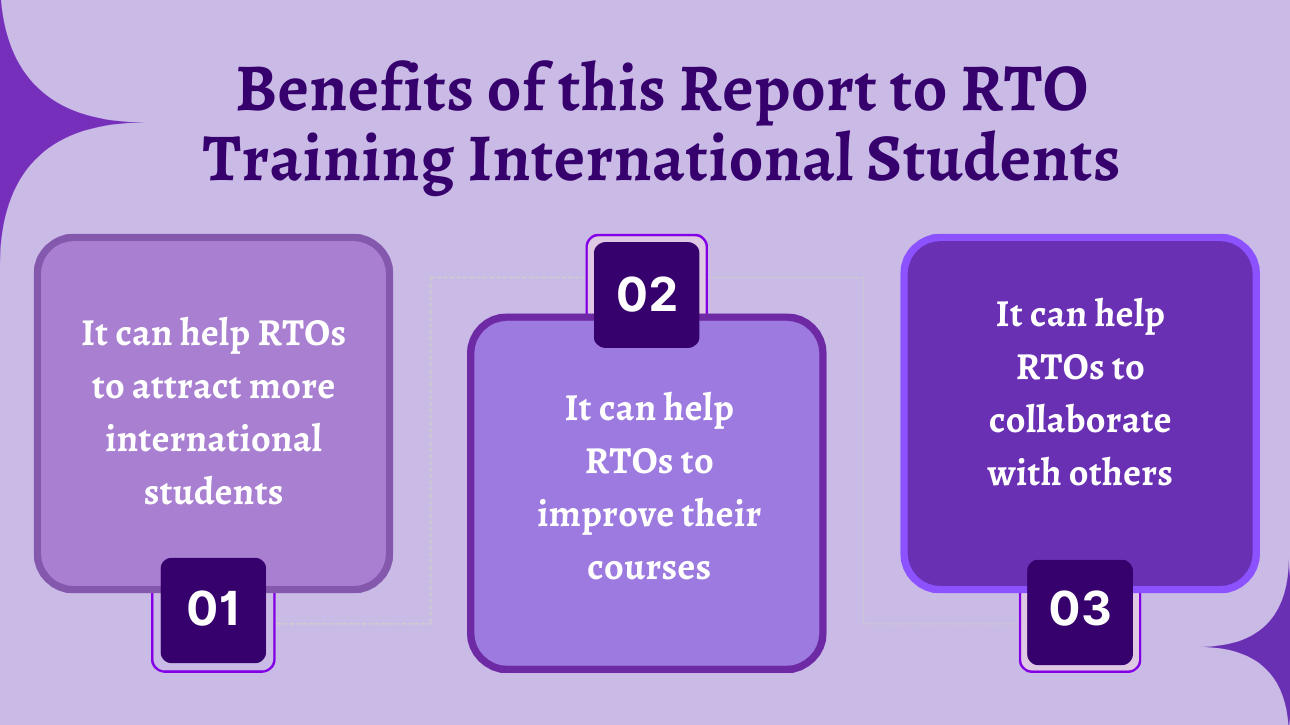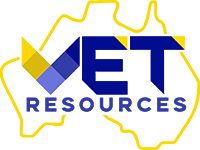Are you an RTO delivering training to international students looking to improve their career prospects in Australia? If so, you may want to consider completing a VET qualification. VET qualifications are a great way to gain the skills and knowledge students need to succeed in the Australian workforce.
A recent report by the National Centre for Vocational Education Research (NCVER) found that international onshore VET qualification completers in Australia had positive In this blog, we will discuss the highlights of the report in this blog that will help with insights that RTOs can use in their training of international students.
The report – International onshore VET qualification completer outcomes 2022, identified a number of factors that contributed to the positive outcomes for international VET completers, including
- The strong economy in Australia, created more employment opportunities for international students.
- The increased demand for skilled workers in Australia, made it easier for international students to find employment after training.
- The improved quality of VET courses in Australia, which made them more attractive to international students.
- The support and guidance provided by Registered Training Organisations (RTOs) to international students.
Key Findings from the Report

- Overall, 72.3% of international onshore qualification completers undertook training for employment-related reasons, 24.7% for personal reasons, and 3.0% for further study reasons.
- The most common reason for training was to ‘develop or start my own business’, as cited by 23.0% of international onshore qualification completers.
- 6% of international onshore qualification completers achieved their main reason for training, up 1.7 percentage points from 2021.
- In 2022, 73.0% of international onshore qualification completers had an improved employment status after training, up 8.9 percentage points from 2021.
- 0% of international onshore qualification completers were employed after training, up 7.5 percentage points from 2021.
- 5% of international onshore qualification completers enrolled in further study after training, down 5.1 percentage points from 2021.
- 2% of international onshore qualification completers were satisfied with the training overall, up 1.8 percentage points from 2021.
- 9% of international onshore qualification completers are likely to recommend their training provider, up 2.0 percentage points from 2021.
- 8% of international onshore qualification completers undertook learning online. Of these, 85.6% were satisfied with the support received from teachers/trainers during online learning and 83.2% were satisfied with the overall quality of their online experience.
- 2% of international onshore qualification completers had training shift online due to the COVID-19 pandemic.
- 1% of international onshore qualification completers had a work placement delayed due to the COVID-19 pandemic.
Benefits of this Report to RTO Training International Students

- It can help RTOs to attract more international students. The report provides evidence that VET qualifications can lead to positive outcomes for international students, such as employment, further study, and satisfaction. This can help RTOs to market their courses to international students and convince them that VET is a good investment.
- It can help RTOs to improve their courses. The report also identifies some of the factors that contribute to the positive outcomes of VET qualifications for international students, such as the quality of the training and the support provided by RTO’s. This information can help RTOs to improve their courses and ensure that they are meeting the needs of international students.
- It can help RTOs to collaborate with others. The report highlights the importance of collaboration between RTO’s, employers, and other organisations in order to provide international students with the best possible opportunities. This information can help RTOs to build relationships with other organisations and work together to create a more supportive environment for international students.
Conclusion
The positive outcomes for international VET completers in Australia are a testament to the value of VET qualifications for international students. If you are an RTO training international students who are looking to improve their career prospects in Australia, then this report will be surely beneficial for the RTO.
Are you an RTO looking for the best training resources then VET Resources is your partner. We also offer free RTO consultation. We also have a YouTube channel with videos on RTO and its operations. For more information, please contact us here.
Frequently Asked Questions (FAQs)
Q.1. What is the difference between VET and university education?
A.1. VET qualifications are typically shorter and more focused on practical skills, while university degrees are more theoretical, and research based. VET qualifications can be a good option for students who want to enter the workforce quickly, while university degrees can be a good option for students who want to pursue a career in research or academia.
Q.2. What are the different types of VET qualifications?
A.2. There are many different types of VET qualifications, including certificates, diplomas, and advanced diplomas. Certificates are the most basic level of VET qualification, followed by diplomas and advanced diplomas. The type of VET qualification you choose will depend on your skills and experience, as well as your career goals.
Q.3. How can I find a VET qualification that is right for me?
A.3. There are a few things you can do to find a VET qualification that is right for you. First, consider your career goals and what skills you need to achieve them. Second, research different VET qualifications and find one that is aligned with your interests and skills. Finally, talk to your education counsellor or advisor for more guidance.
Q.4. How can I get financial assistance to study VET?
A.4. There are a number of ways to get financial assistance to study VET, including government scholarships and grants, student loans, work-study programs, and employer sponsorship. You can find more information about financial assistance for VET on the website of the Australian Government Department of Education.
Q.5. What are the benefits of using statistical reports to inform decisions about VET for international students?
A.5. Statistical reports can be a valuable resource for making decisions about VET for international students. They can provide information on the demand for VET qualifications, the employment outcomes of VET graduates, and the satisfaction of VET students. This information can be used to identify which VET qualifications are most in demand, which VET providers are providing the best quality training, and which VET courses are most likely to lead to employment.
Q.6. What are the requirements for international students to study VET in Australia?
A.6. The requirements for international students to study VET in Australia vary depending on the qualification you want to study. However, some common requirements include:
- A certain level of English language proficiency
- A certain level of academic achievement
- Relevant work experiences
- A visa that allows students to study in Australia
Suggested Read: What Measures Must RTOs take to deliver the best ELICOS Course
Disclaimer:
The information presented on the VET Resources blog is for general guidance only. While we strive for accuracy, we cannot guarantee the completeness or timeliness of the information. VET Resources is not responsible for any errors or omissions, or for the results obtained from the use of this information. Always consult a professional for advice tailored to your circumstances.






